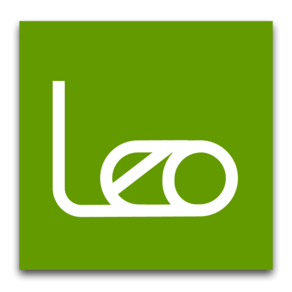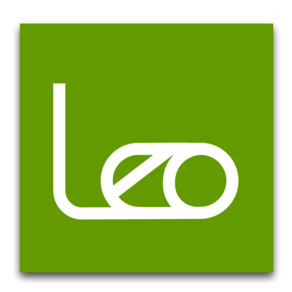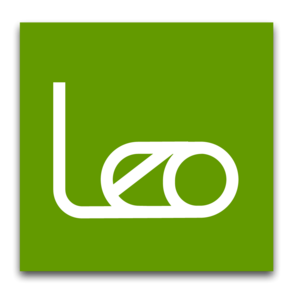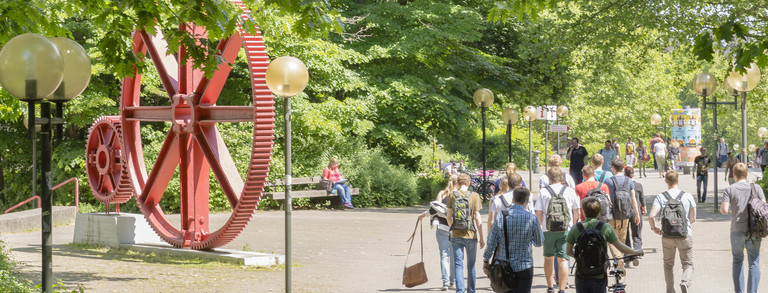Centre of Complexity Sciences and Entrepreneurship Education
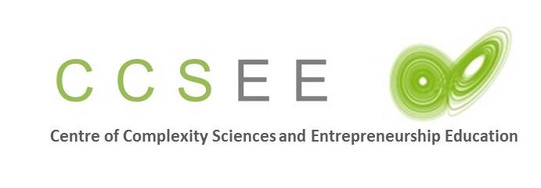
Mission
The Centre of Complexity Sciences and Entrepreneurship Education (CCSEE) takes up highly topical research approaches:
The modern economy is characterized by progressive complexity; as a result, many traditional economic explanatory models are increasingly losing their persuasive power. Macroeconomic development is not always characterized by smooth transitions, as many traditional models suggest. Rather, discontinuities and seemingly unpredictable turbulences occur, as illustrated by the development of stock prices or the current economic crisis. The economy and economy-related subsectors can thus be understood as nonlinear, dynamic systems. In this context, one also speaks of complex systems.
The findings of the complexity sciences are to be used at the new Center for the area of Economic and Entrepreneurial Education. Economic education is the part of general education that enables people to act professionally and responsibly in a world increasingly permeated by economic demands. Accordingly, the training of Economics teachers as well as professional development (e.g. Entrepreneurship Education) play an important role in the teaching at the chair of Prof. Liening. The focus in Dortmund is on issues of business administration. Therefore, the title of the Center also includes the term "Entrepreneurship Education". In this context, a number of research projects are planned, which build on and complement already existing research projects of the chair. Furthermore, they are oriented towards the research fields of business and entrepreneurship education, whereby the input-oriented concepts are neglected due to the new orientation with regard to the increasing output orientation.
Foundation
On November 26, 2008, the founding ceremony took place at the chair of Prof. Dr. Andreas Liening at TU Dortmund University. Besides the professors of the department, guests from other German, and also from foreign universities were expected to attend the ceremony. Thus, scientists from the universities in Münster, Siegen, Vienna, Umea (Sweden) and New York came to be present at the ceremony.
In addition to a musical program, which was arranged by Rolf Bürgermeister (piano) and Johannes Weyer (vocals) with interesting jazz arrangements, the American professor Herbert Sherman from Long Island University gave a lecture entitled "The Wallstreet Meltdown". In this context, he discussed the current problems of the financial crisis from an economic and complexity science perspective. In addition, a greeting from the founder of Synergetics, physicist Prof. Dr. Dr. hc. mult. Hermann Haken, was read out. Synergetics as a theory of self-organization, along with chaos theory and fractal geometry, is considered an important area of the "Complexity Sciences", which will form the scientific basis of the new center's research. For years, Prof. Liening has already made a large number of scientific contributions to this topic in the form of books, articles and lectures at international conferences.
The goal of the Center is, on the one hand, to make the activities of the chair more visible to an international public and, on the other hand, to make the focus of dealing with complex systems in the context of business education clear to the public. In this context, the publication of a corresponding international journal is planned, which will be edited by Prof. Liening as well as by his colleagues from London and New York and which will complement the current book series "Economics and Complex Systems" by Prof. Liening.
The Center takes up highly topical research approaches: The modern economy is characterized by progressive complexity; as a result, many traditional economic explanatory models are increasingly losing their persuasive power. The development of the economy as a whole or even in individual areas, such as the corporate sector, is not always characterized by smooth transitions, as many traditional models suggest. Rather, discontinuities, jumps and seemingly unpredictable turbulences occur, as the development of stock prices or the current economic crisis show. The economy and its related sub-sectors can thus be understood as nonlinear, dynamic systems. In this context, one also speaks of complex systems.
Therefore, it is of particular importance to explore new concepts and methods in the field of complex dynamical systems. Increasingly, research approaches from this field are finding their way into economics, for example, to better understand complex order structures that arise from market-based systems. Neither do the "Complexity Sciences" refute determinism, nor do they consider ordered systems impossible. Although they point out that the current state of a system may not be predictable, they nevertheless show that it is generally possible to model the general features of such a system. Consequently, chaos theory emphasizes not the disorder, the inherent unpredictability of a system's state, but rather the structures of order inherent in a system - the universal properties of homogeneous systems.
The possibility of exploring chaos and associated patterns of order in complex systems became conceivable only with the development of modern computer technology. The multitude of calculations and the various ways of visualizing complex structures were not feasible before. So it is not surprising that especially at the beginning of the nineties of the last century this theory gained importance. In the meantime, the euphoria that accompanied chaos theory in particular has calmed down again and the number of new popular scientific publications has decreased. At the same time, however, the number of scientific publications attempting to transfer important aspects of the "Complexity Sciences" to other scientific fields has increased. The economic sciences are not excluded, since the models made possible by the "Complexity Sciences" are expected to provide better access to economic reality than, for example, the neoclassical paradigm can provide.
For a real science, such as economics, the empirical testability of such models plays an important role. However, this has been lacking so far. At the chair of Prof. Liening, a revolutionary dissertation on the empirical study of complexity has recently been written, from which he and his team expect considerable empirical benefits. Now, the findings of complexity science at the new Center will be applied to the field of Economic Education. Economic Education is the part of general education that enables people to act professionally and responsibly in a world increasingly permeated by economic demands. Accordingly, the training of teachers for the subject of Economics as well as professional development (e.g.Eentrepreneurship Education) play an important role in the teaching at the chair of Prof. Liening.
International network
Thanks to Prof. Dr. Andreas Liening, the Centre of Complexity Sciences and Entrepreneurship Education (CCSEE) has already been able to build up an international network. This circle includes well-known personalities:
- Anani, Prof. Dr. Adi, University of Umea (Umea, Sweden)
- Davies, Prof. Peter, PhD, University of Staffordshire (Staffordshire, Great Britain)
- Schlösser, Prof. Dr. Hans Jürgen, University of Siegen (Siegen, Germany)
- Sherman, Prof. Herbert, PhD, Long Island University (New York, USA)
- Simmonds, Dr. David, Westminster University (London, Great Britain)
- Strunk, PD Dr. Dr. Guido, Vienna University of Economics and Business (Vienna, Austria)
- Ziolo, Dr. Paul, University of Liverpool (Liverpool, Great Britain)
Recognitions
Prof. Dr. Dr. hc mult. H. Haken congratulated Prof. Dr. Andreas Liening on the launch of the Center and stated that Prof. Liening recognized the importance of new concepts such as Chaos Theory and Fractal Geometry for application in economics at an early stage and has contributed a great deal since then. Especially nowadays, it has become clear to a broad public how complex economic processes are in reality, especially in the field of finance, and how drastic the consequences for our daily lives can be.
Within the framework of the foundation, Prof. Andreas Liening plans not only to research complexity, but also to put it into practice in the context of Entrepreneurship Education.

